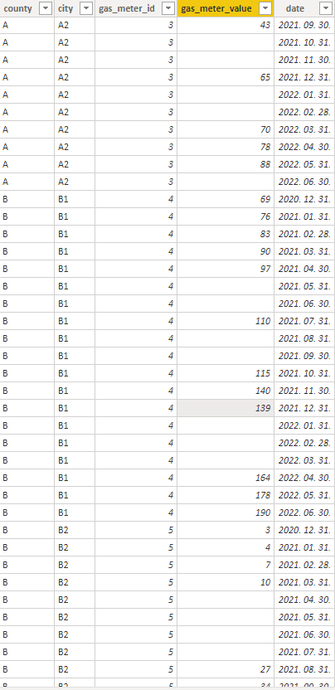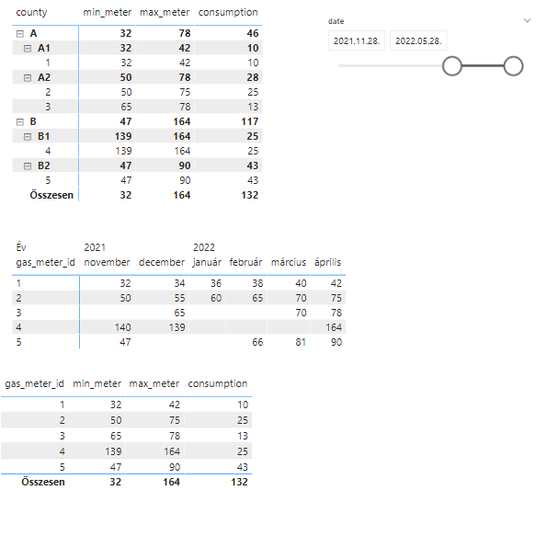- Power BI forums
- Updates
- News & Announcements
- Get Help with Power BI
- Desktop
- Service
- Report Server
- Power Query
- Mobile Apps
- Developer
- DAX Commands and Tips
- Custom Visuals Development Discussion
- Health and Life Sciences
- Power BI Spanish forums
- Translated Spanish Desktop
- Power Platform Integration - Better Together!
- Power Platform Integrations (Read-only)
- Power Platform and Dynamics 365 Integrations (Read-only)
- Training and Consulting
- Instructor Led Training
- Dashboard in a Day for Women, by Women
- Galleries
- Community Connections & How-To Videos
- COVID-19 Data Stories Gallery
- Themes Gallery
- Data Stories Gallery
- R Script Showcase
- Webinars and Video Gallery
- Quick Measures Gallery
- 2021 MSBizAppsSummit Gallery
- 2020 MSBizAppsSummit Gallery
- 2019 MSBizAppsSummit Gallery
- Events
- Ideas
- Custom Visuals Ideas
- Issues
- Issues
- Events
- Upcoming Events
- Community Blog
- Power BI Community Blog
- Custom Visuals Community Blog
- Community Support
- Community Accounts & Registration
- Using the Community
- Community Feedback
Register now to learn Fabric in free live sessions led by the best Microsoft experts. From Apr 16 to May 9, in English and Spanish.
- Power BI forums
- Forums
- Get Help with Power BI
- Desktop
- Re: Gas consumption with missing readings
- Subscribe to RSS Feed
- Mark Topic as New
- Mark Topic as Read
- Float this Topic for Current User
- Bookmark
- Subscribe
- Printer Friendly Page
- Mark as New
- Bookmark
- Subscribe
- Mute
- Subscribe to RSS Feed
- Permalink
- Report Inappropriate Content
Gas consumption with missing readings
Hi,
I'm quite new to power BI and I have to calculate gas consumption over a period, but there are holes in the data, like this (all gas meter has a row at the end of the month, but sometimes there is no reading):
Because of these missing data, the calculation of consumption (or at least something close to it) shold be the maximum reading minus the minimum reding of a period. I created the following measures:
The problem is, that on gas_meter_id level the calculated consumption is correct, but higher levels (city or county summary) it's not, because it calculates the min and max value of that level, not the aggregated sum of the gas meters consumptions:
County A consumption should be 10+25+13=48 not 46, city A2 consumption should be 25+13=38 not 28.
How can I show the correct county and city values?
Thank you in advance !
Sanko
Solved! Go to Solution.
- Mark as New
- Bookmark
- Subscribe
- Mute
- Subscribe to RSS Feed
- Permalink
- Report Inappropriate Content
Hi,
you could add a calculated column to your table, something like:
PreviousMeter := CALCULATE(
MAX(Gas_meters[gas_meter_value]),
FILTER(
'Gas_meters',
'Gas_meters'[date] < EARLIER('Gas_meters'[date]) &&
'Gas_meters'[county] = EARLIER('Gas_meters'[county]) &&
'Gas_meters'[city] = EARLIER('Gas_meters'[city]) &&
'Gas_meters'[gas_meter_id] = EARLIER('Gas_meters'[gas_meter_id])
)
)
And add another calculated column
GasConsumption :=
IF(
'Gas_meters'[gas_meter_value] > 0,
'Gas_meters'[gas_meter_value] - 'Gas_meters'[PreviousMeter]
)
Now you can just add a measure
Gas consumption = SUM('Gas_meters'[GasConsumption])
and don't have to worry in any constellation. It just takes a little longer to refresh data (depending on the size of the original table). But I do something similar with >200k rows and it just takes seconds
BR
- Mark as New
- Bookmark
- Subscribe
- Mute
- Subscribe to RSS Feed
- Permalink
- Report Inappropriate Content
Thank you, it works!
Sanko
- Mark as New
- Bookmark
- Subscribe
- Mute
- Subscribe to RSS Feed
- Permalink
- Report Inappropriate Content
Hi,
you could add a calculated column to your table, something like:
PreviousMeter := CALCULATE(
MAX(Gas_meters[gas_meter_value]),
FILTER(
'Gas_meters',
'Gas_meters'[date] < EARLIER('Gas_meters'[date]) &&
'Gas_meters'[county] = EARLIER('Gas_meters'[county]) &&
'Gas_meters'[city] = EARLIER('Gas_meters'[city]) &&
'Gas_meters'[gas_meter_id] = EARLIER('Gas_meters'[gas_meter_id])
)
)
And add another calculated column
GasConsumption :=
IF(
'Gas_meters'[gas_meter_value] > 0,
'Gas_meters'[gas_meter_value] - 'Gas_meters'[PreviousMeter]
)
Now you can just add a measure
Gas consumption = SUM('Gas_meters'[GasConsumption])
and don't have to worry in any constellation. It just takes a little longer to refresh data (depending on the size of the original table). But I do something similar with >200k rows and it just takes seconds
BR
Helpful resources

Microsoft Fabric Learn Together
Covering the world! 9:00-10:30 AM Sydney, 4:00-5:30 PM CET (Paris/Berlin), 7:00-8:30 PM Mexico City

Power BI Monthly Update - April 2024
Check out the April 2024 Power BI update to learn about new features.

| User | Count |
|---|---|
| 96 | |
| 94 | |
| 82 | |
| 70 | |
| 64 |
| User | Count |
|---|---|
| 116 | |
| 106 | |
| 94 | |
| 79 | |
| 72 |


